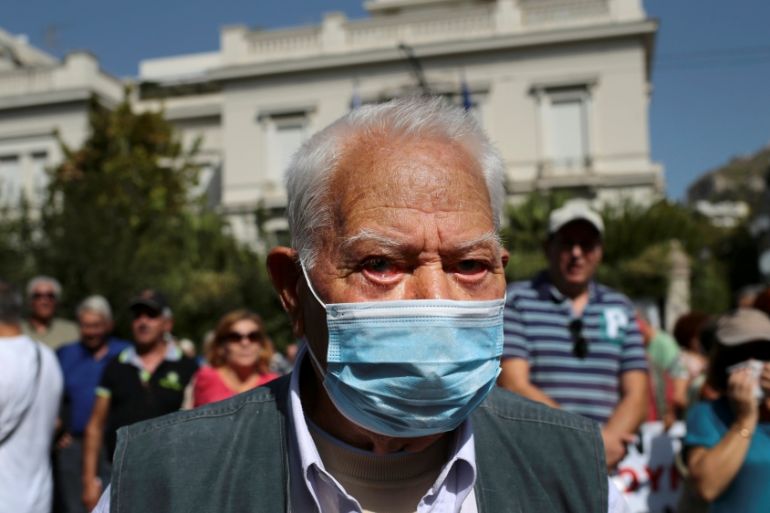Greeks strike against ‘repressive austerity’
Civil servants, bank staff, merchant seamen and others shut down the country to oppose new pay cuts and taxes.

Greece’s leading unions have launched a general strike that shut down several key sectors in protest over planned new pay cuts and taxes called for by international creditors.
|
|
Civil servants, bank staff, merchant seamen, railway workers and state-employed doctors were among professionals taking part in Thursday’s 24-hour stoppage against the measures, which are scheduled to be approved by politicians at the weekend.
“We are reacting to repressive austerity, poverty and destitution … once again we face absurd demands by [Greece’s EU-IMF] creditors,” leading union GSEE said.
Passenger ships remained docked at ports, city transport was disrupted and local administration offices shut down as workers joined the 24-hour nationwide walkout called for by the country’s largest private and public sector unions, GSEE and ADEDY.
“The burden we carry is already unbearable,” added GSEE in a statement, calling lenders’ demands “irrational”.
“The downturn must finally end,” its rally poster read.
Journalists had staged a one-day walkout on Wednesday.
Raised taxes
The country’s international creditors – fellow EU states and the International Monetary Fund – want Greece to overhaul its labour legislation to make crippling strikes less likely while also facilitating layoffs.
A new budget containing around a billion euros ($1.07bn) from extra taxation on items including cars, fixed telephone service, pay TV, fuel, tobacco, coffee and beer is to be approved by parliament early on Sunday.
Public spending on salaries and pensions will also be cut by 5.7 billion euros ($6.13bn) next year.
READ MORE: EfSyn – A Greek media success story
Unions are also angry over plans to raise more than 2 billion euros ($2.15bn) next year from privatisations, including 1.2 billion euros from the sale of regional airports.
Separate union demonstrations are planned in Athens and major Greek cities later in the day.
Already huge, Greece’s debt after three consecutive bailouts is on course to reach a mammoth 315 billion euros ($338bn), or around 180 percent of the country’s gross domestic output this year, according to the latest EU data.

Protesters have clashed with police forces repeatedly in recent months. Last week, demonstrators with physical disabilities protested against government cuts to their monthly disability cheques and pensions.
Prime Minister Alexis Tsipras hopes a deal can be reached by the end of the year for the country’s bonds to be included in the European Central Bank’s bond-buying programme by March 2017.
This would help Greece return to markets next year, for the first time since 2014, and eventually reduce its dependence on bailout loans. Athens has rejected pressure to extend its painful austerity programme beyond 2018 as part of a deal to bridge differences between the squabbling international creditors.
On Monday, the eurozone granted Greece short-term debt relief, which was hailed as a success by the leftist-led government that has been sagging in polls for months.
But the news did not impress austerity-hit Greeks, who have lost almost a third of their income since the crisis started in 2009.